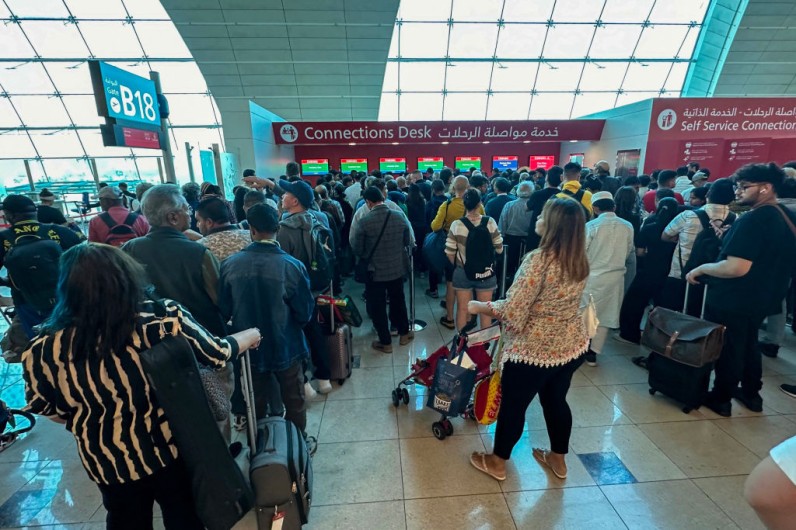
Dubai International Airport, one of the world's busiest, saw major delays for the third day in a row Thursday as the highest rains on record soaked the desert United Arab Emirates.
Emirates, Dubai's state-owned flagship airline, and sister carrier flydubai resumed check-ins after warning travelers to avoid the airport on Wednesday due to thousands of delayed passengers.
United Arab Emirates Struggles to Recover From Flight Delays
Dubai Airports CEO Paul Griffiths told AFP that the airport, which handles the most international passengers, wants to return to "something approaching normality" within 24 hours.
On Tuesday and Wednesday, severe rains swamped the Middle East financial center, including its houses, malls, workplaces, and highways, canceling 1,244 flights and diverting 41 others.
On Thursday, two days after the storms, traffic congestion was still severe, with at least one major road entirely blocked by water and other junctions cut off by flooding.
Climate experts say the UAE's highest rainfall since records began 75 years ago are consistent with global warming-related developments.
The primary road connecting the UAE's most populated emirate Dubai with Abu Dhabi is still partially closed, and an alternate route into Dubai requires motorists to use a road completely covered in floodwater, where automobiles and busses have been abandoned.
According to Reuters, people in the UAE's north, including the emirate of Sharjah, were allegedly still stranded in their houses, while others stated companies had suffered major damage.
Aftermath of Dubai's 'Apocalyptic' Storm
Rains are uncommon in the UAE and elsewhere in the Arabian Peninsula, which is noted for its arid desert climate and summer air temperatures that often exceed 50 degrees Celsius.
The UAE's National Center of Meteorology warned on social media platform X that Monday may see light rain by late night and predicted "a chance of light to moderate rainfall, might be heavy at times over some areas" for Tuesday, with temperatures dropping in some coastal areas.
Although the UAE had some sunshine on Thursday, authorities cautioned that further thunderstorms, heavy rain, and strong winds were expected in the region.
More than 1,400 people in Oman have been evacuated to shelters, with schools and government offices closed.
Sheikh Mohammed bin Zayed Al Nahyan, the president of the UAE, has ordered a study of the country's infrastructure, which has been harmed by the harsh weather.
He asked authorities to assess the damage and assist impacted families, including relocating them to safer regions, Daily Mail reported.







Join the Conversation